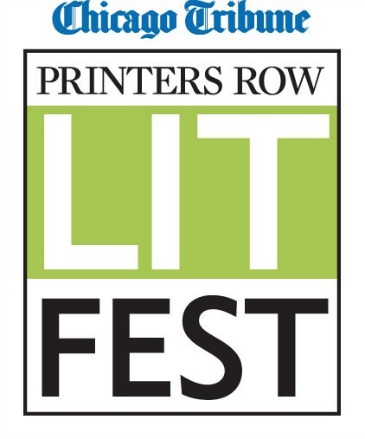Printers Row Lit Fest Examines The Digital Revolution
By Staff in Arts & Entertainment on Jun 9, 2014 9:55PM
 Last weekend marked the 30th Anniversary of Printers Row Lit Fest. With a host of readings, panels and conversations spread between writers, publishers and editors, the weekend was packed tight with insights, stories and speculations about the future of the literary realm at large. Among the most profound of these conversations was a panel moderated by Colin McMahon of the Chicago Tribune entitled “The Digital Revolution.” Dominque Raccah, CEO of SourceBooks, and Owen Youngman, Professor of Digital Media Strategy at Medill Northwestern University, spoke in response to questions raised by McMahon in regards to what is often dubbed the “digital disruption.”
Last weekend marked the 30th Anniversary of Printers Row Lit Fest. With a host of readings, panels and conversations spread between writers, publishers and editors, the weekend was packed tight with insights, stories and speculations about the future of the literary realm at large. Among the most profound of these conversations was a panel moderated by Colin McMahon of the Chicago Tribune entitled “The Digital Revolution.” Dominque Raccah, CEO of SourceBooks, and Owen Youngman, Professor of Digital Media Strategy at Medill Northwestern University, spoke in response to questions raised by McMahon in regards to what is often dubbed the “digital disruption.”
Topics ranged from discussing what drives the digital market to what the age of digitization means for the future of authors, agents and publishing as a whole. Both panelists were pro-digital and spoke more often than not about the positive aspects of this newer literary platform.
Raccah immediately laid to rest the ubiquitous question: “Will the digital age eviscerate the book entirely?” with a resounding “no,” and went on to speak about the nuances of the book market. She pointed out that while 80 percent of romance novels are published digitally, only 2 percent of children’s books are published on a digital platform. Raccah reassured the audience that each niche of the literary world moves and will continue to move at its own pace in regards to digitization.
One negative aspect of digital publishing that was discussed is the lack of marketing for authors on the part of most publishers. It was universally agreed that marketing is being pushed more and more on the author, and Raccah made a point to say that she sees this as a gross injustice. She argued that if authors could market themselves, they’d have no need for publishers, and that isn’t the case. Raccah further pointed out that in an age when digital and self-publishing are thriving, nearly 3,500 books per day are being published, which makes it that much more difficult for any one person to get her book seen.
There were a host of other issues which were equally nuanced and which neither Raccah nor Youngman could give definitive answers to. All in all though, the panelists left us (or at least this writer) with a greater sense of hope as to what it means to be a writer in the digital age.
By: Jaclyn Bauer